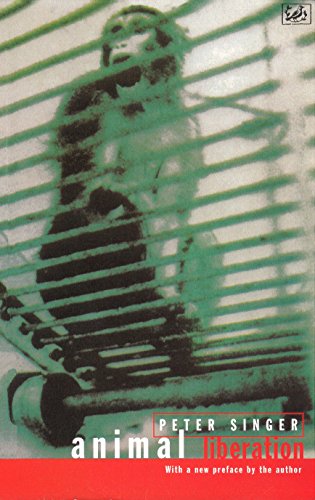

Again, even in these dramatic chapters, he conservatively chooses examples sourced from the industries most motivated to justify and downplay the routine horror of the animals’ treatment. However, as he says, if the animals must endure the suffering, the least we can do is be informed. The chapters which detail the animal suffering and the reasons for it, in both cases, are difficult reading as Singer acknowledges. Singer focuses on just two issues - experimentation on animals and rearing animals for food - because these affect the largest number of animals and are the ones in which people have the most direct relationship: We fund the studies and eat the animals.

The aim is to prevent suffering and Singer shows that vast grievous suffering can be avoided with little sacrifice - but sweeping changes - from humans.Ĭonversely, giving animals no consideration results in egregious (in terms of quantity, severity and uselessness) suffering. Singer’s approach persuades because of his utilitarian ethics, his structured argument, and his choice, at each opportunity, of the most conservative tack as he makes the case for extending the principle of equality to all beings. When we don’t consider animals, we create and condone suffering. “What we must do is bring nonhuman animals within our sphere of moral concern and cease to treat their lives as expendable for whatever trivial purposes we may have.” While it’s common now to talk about the value of emotional appeals to stimulate behaviors, Singer’s approach is logical, reasoned - and persuasive. Singer makes a strong ethical argument throughout Animal Liberation that 1) it is morally indefensible to eat animals and 2) boycotting meat is the best thing you can do today to reduce animal suffering. The book is the reason I went meat-free ( on Thanksgiving Day 25 years ago) - however, that’s far from a unique experience.


Secondly, if you haven’t read Singer’s most reprinted and translated work, Animal Liberation - it’s time! It’s a valuable re-read, too, if it’s been awhile.Īnimal Liberation, originally published in 1975, is “the definitive classic of the animal movement” and a seminal work on animal rights. Singer’s book of the same name, Practical Ethics (1979), is his second most reprinted work. Firstly, in March, you can take a free online course on Practical Ethics taught by Peter Singer author, ethicist and professor of bioethics at Princeton University - how fantastic! - go sign up now.


 0 kommentar(er)
0 kommentar(er)
